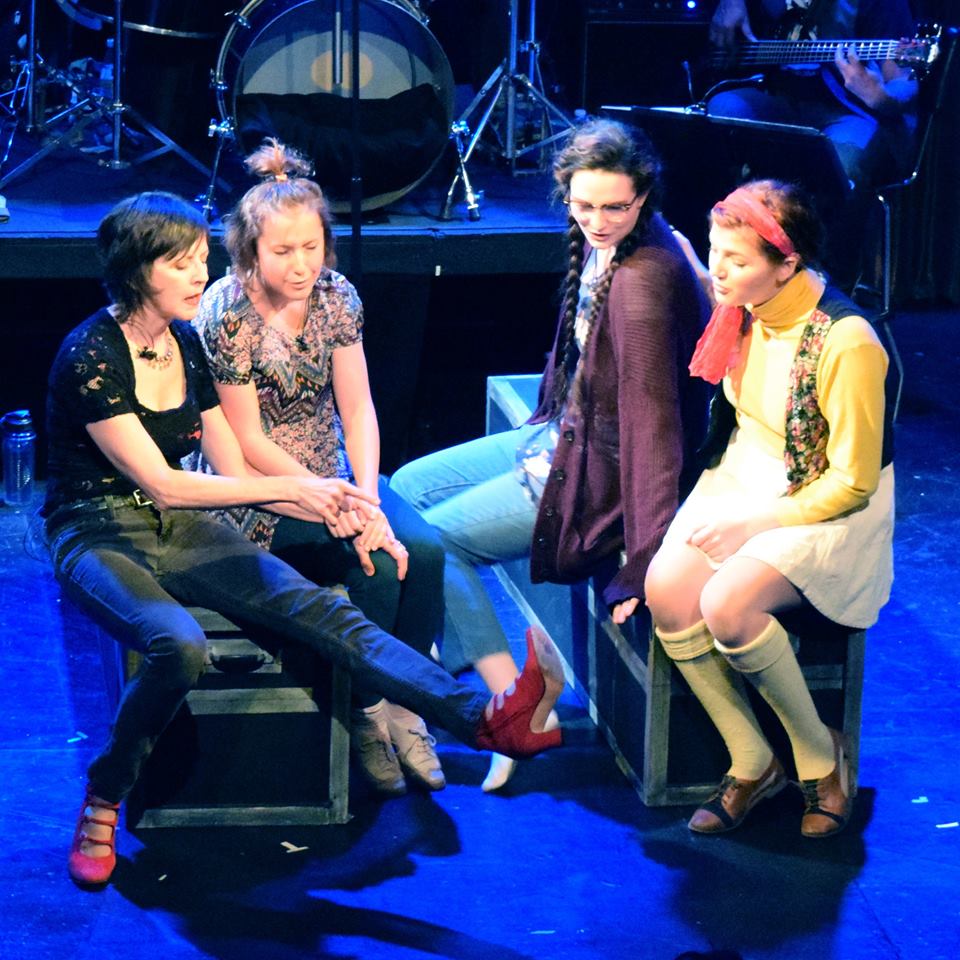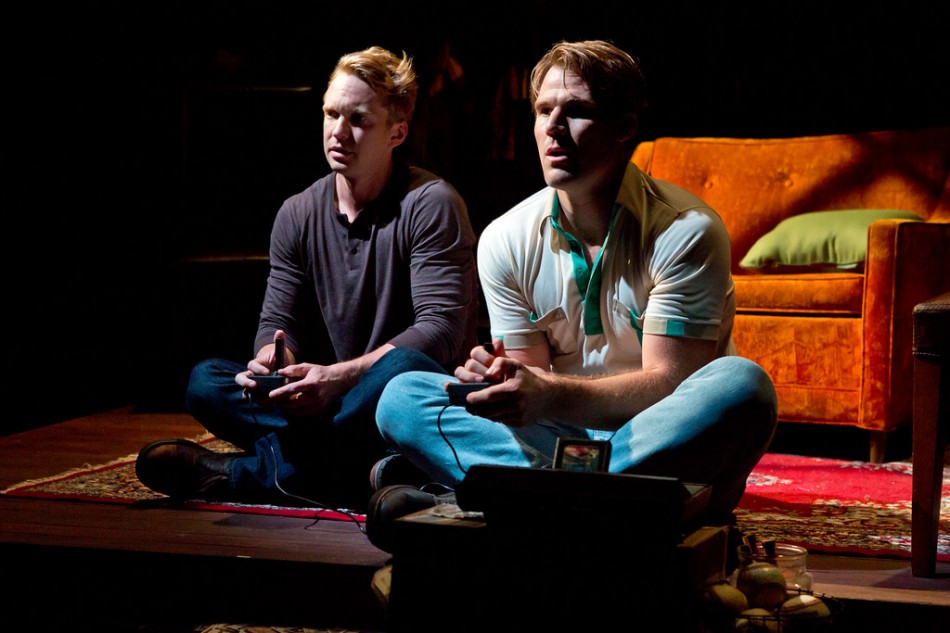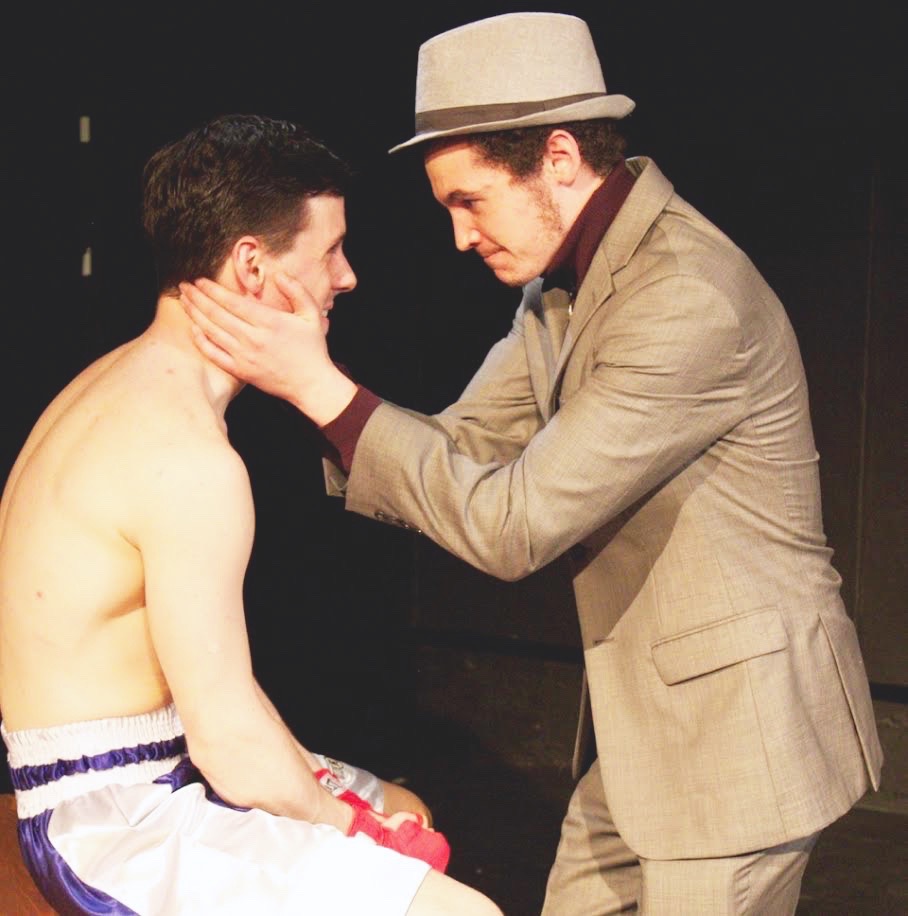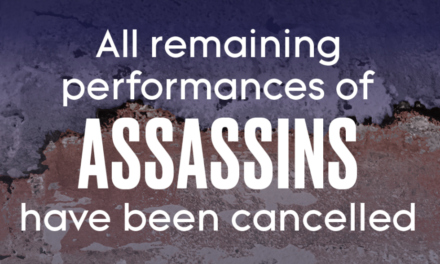By Beatrice Williams-Rude
Water From the Moon is described as a “rock opera.” It’s certainly “rock,” ear-splittingly so at times; and it’s an opera, seemingly of Wagnerian length.
The astonishingly talented Rosemary Loar wrote the music, lyrics, and with husband Robert W. Atwood, the book as well. She also plays the protagonist, Wildberry, in what is an unmistakably autobiographical work.
The work begins at a rehearsal at the Hollywood Bowl where the star is continually interrupted by phone calls about her dying father, from whom she’s long been estranged.
These calls evoke memories and we see vignettes of life with father, an ebullient charmer at one moment and a cruel bully at the next. Daddy, exquisitely embodied by Rich Herbert, has a hair-trigger temper and is so defensive he turns virtually every happy occasion into one of strife and ugliness. He destroys the gentle artistic daughter (“I was just trying to light a fire under her.”) constantly brutalizes his wife, and drives Wildberry away. Yet he sings like an angel.


The Daddy character brings Jackie Gleason’s Ralph Kramden of the Honeymooners and Carroll O’ Connor’s Archie Bunker in All in the Family to mind—but Daddy is much more vicious than either and never gets his comeuppance, except from life.
The title, “Water From the Moon,” is Daddy’s expression for the impossible—yeah, she’ll do it when there’s water from the moon.
The structure of the work has people being portrayed at various ages and it becomes confusing at times when the present day characters are interacting with themselves and others in the various vignettes. Other playwrights have used the technique—Thornton Wilder, Eugene O’Neill, Stephen Sondheim—but never as bafflingly as in this piece.
Rosemary Loar is a force of nature: singing screaming fortississimo (fff) producing white, uncovered, straight tones without color, covering or vibrato, then sweetly, pianissimo, with lovely head tones. She’s front and center most of the time so it’s fortunate that she’s a pleasure to behold: willowy and agile.
The choreographer, Robert Tunstall, deserves kudos—the entire cast moves beautifully and are dancing most of the time.
The guitarist, Tomás Doncker, who plays Isaiah, lends a comforting presence.
The director is Lisa Milinazzo.
But this is the Rosemary Loar show—dedicated to Vincent Loar and Robert W. Atwood—and she needs an editor. Water From the Moon runs for two hours and fifteen minutes with a 15-minute intermission. It needs to be trimmed by about a half hour, or at least 20 minutes. Many of the songs neither stand alone nor further the plot. There’s a repetitiousness.
A hard eye should be cast on the scenes in which characters of various ages are interacting with one another mixing present and past.
The problem with someone’s wearing so many hats in a production is that there’s no one to say them nay. Even the program needs an editor.
Water From the Moon has been running at Urban Stages in Manhattan, 259 West 30th Street. The last performance this time round is Jan. 17.






















